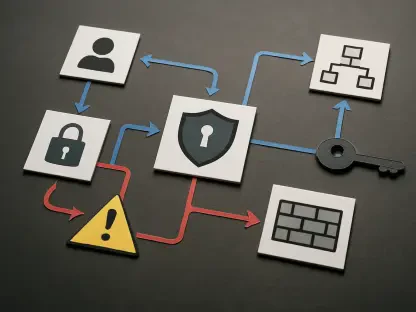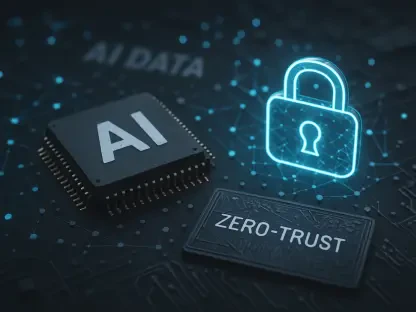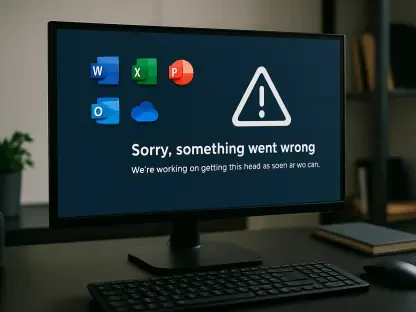Apple recently issued a critical security warning to iPhone users about sophisticated spyware capable of compromising devices without any user interaction. This revelation has sent shockwaves through the tech community, raising concerns about the vulnerability of even the most secure smartphones. This spyware, identified as Pegasus, developed by the Israeli firm NSO Group, can potentially grant attackers complete access to your iPhone, including your personal data, messages, calls, and even your camera and microphone. This isn’t the first time Pegasus has made headlines. It has been allegedly used in various targeted attacks against journalists, activists, and political figures worldwide. What makes this recent warning particularly alarming is the discovery of a new “zero-click” exploit, meaning the spyware can infect your device without you even clicking a malicious link or downloading a compromised file. This invisible threat has raised the stakes significantly, making it crucial for iPhone users to understand the risks and take necessary precautions.
1. Update Your iPhone
Keeping your iPhone up to date with the latest iOS version is the first line of defense against security threats like Pegasus spyware. Apple continuously works to identify and patch vulnerabilities in their software. By ensuring your device runs the latest iOS version, you benefit from all the security enhancements and fixes that Apple releases. These updates often address various potential exploits that hackers could use, making your device more secure overall. Ignoring updates can leave your iPhone exposed to known vulnerabilities that malicious actors can exploit.
Updating your iPhone is straightforward; automatic updates can be enabled in settings to download and install new versions as they become available. This proactive approach is crucial in an environment where zero-click exploits can bypass user interaction, as it minimizes the window of opportunity for attackers to exploit any security flaws. In addition to updating immediately, it’s worthwhile to follow tech news and security alerts related to iOS to stay informed about any new threats and pending updates.
2. Be Wary of Suspicious Links and Attachments
Even though Pegasus spyware can infect devices without user interaction, staying vigilant about suspicious links and attachments remains an essential practice. Cyber attackers often use phishing tactics to trick users into clicking malicious links or downloading compromised files. These tactics are still prevalent and can lead to other types of malware or spyware infiltrating your device. Always be cautious about the sources of links and attachments, especially if they come from unknown senders or look suspicious.
Inspect the content carefully before interacting with it; even if it appears to come from a known source, verify it through alternative contact methods. This verification process can prevent falling victim to sophisticated phishing attacks that mimic legitimate communication. When in doubt, err on the side of caution and delete unsolicited messages with attachments or links. This cautious approach can significantly reduce the risk of unintentionally inviting malware onto your device.
3. Use a Strong Passcode and Enable Face ID/Touch ID
Enhancing the security of your iPhone with a strong passcode and biometric authentication adds an extra layer of protection that can be hard for attackers to bypass. A robust passcode should be long and complex, minimizing the chance of being guessed or cracked. Face ID and Touch ID provide quick and secure methods for accessing your device, leveraging advanced biometric technology. These features ensure that even if someone has brief physical access to your phone, they cannot easily unlock it without your authentication.
Setting up a strong passcode and enabling these biometric options can be done quickly in your iPhone settings. This combination improves security by requiring something you know (your passcode) and something you are (your biometric information) for access. It’s crucial to keep these security features up to date and enabled at all times, especially in light of advanced threats like zero-click spyware. By fortifying access controls, you add an additional hurdle for anyone attempting to exploit your device.
4. Enable Two-Factor Authentication
Implementing two-factor authentication (2FA) on your iPhone and all associated accounts significantly boosts security by adding an extra verification step during the login process. Even if an attacker manages to obtain your password, they would still need the second form of authentication, like a code sent to your phone or an authentication app, to access your accounts. This additional layer of security is particularly important for protecting sensitive data and accounts from unauthorized access.
Enabling 2FA is a simple process and can be done in the settings of your Apple ID, as well as other important apps and services you use. This step ensures that you receive alerts and can take action if someone tries to access your account without authorization. As cyber threats become more sophisticated, relying on a single password is no longer sufficient. Two-factor authentication provides a vital safeguard by requiring dual verification, thus making it harder for attackers to achieve their goals.
5. Limit App Permissions
Another effective strategy to protect yourself from spyware attacks is to limit app permissions to the bare minimum required for functionality. Many apps request access to various features and data on your iPhone, but not all permissions are necessary for the app to work properly. By granting only the essential permissions, you reduce the potential for apps to misuse or leak your personal information. Regularly review and adjust the permissions for each app in your settings to ensure they only have access to what’s needed.
This proactive measure not only enhances your privacy but also prevents unauthorized access to sensitive data, such as your contacts, location, and camera. Some apps may request permissions as a default setting that you can and should revoke. Being diligent about app permissions also involves scrutinizing the apps you download and ensuring they are from trusted sources. Avoid downloading apps from unofficial or unknown sources, as these can be more prone to containing malicious code.
6. Be Mindful of Your Online Activity
Maintaining awareness of your online activity and the data you share can help prevent unauthorized access and enhance your overall digital security. Avoid posting sensitive personal information online, and be cautious about the websites you visit. Ensure that the sites you interact with are secure (look for “https” in the URL), which indicates encryption and a higher level of safety. By remaining vigilant about your online behaviors, you can minimize the risk of exposing yourself to potential cyber threats.
Additionally, practice safe browsing habits, such as regularly clearing your browser cache and avoiding public Wi-Fi networks without proper security measures like a VPN. Sharing too much information on social media or other platforms can also make you a target for phishing and other cyber attacks. By being mindful of your digital footprint, you control the amount of information accessible to potential attackers and can better guard against spyware and other malicious threats.
7. Consider Using a VPN
Considering the advanced nature of the Pegasus spyware, using a Virtual Private Network (VPN) can provide an additional layer of security for your online activities. A VPN encrypts your internet connection, making it more difficult for hackers to intercept and access your data. This is particularly useful when using public Wi-Fi networks, which are more vulnerable to cyber attacks. A reliable VPN can mask your IP address and online activities, making it harder for attackers to track and target you.
While a VPN cannot fully protect against zero-click exploits like Pegasus, it enhances your overall online security and privacy. It is a valuable tool in conjunction with other protective measures, such as keeping your iPhone updated and being cautious with links and attachments. Selecting a reputable VPN service that prioritizes user privacy and security can further mitigate risks and help safeguard your personal information from potential threats.
In conclusion, Apple recently issued a critical security warning to iPhone users about advanced spyware capable of compromising devices without any user interaction. This alarming news has shaken the tech world, highlighting the vulnerability of even the most secure smartphones. The spyware, named Pegasus, was developed by the Israeli firm NSO Group and can grant attackers complete unfettered access to your iPhone, including personal data, messages, calls, and even your camera and microphone. Pegasus is not new to headlines; it has been allegedly used in targeted attacks against journalists, activists, and political figures worldwide. However, what makes this recent warning particularly concerning is the discovery of a new “zero-click” exploit. This means that the spyware can infiltrate your device without the need for you to click a malicious link or download a compromised file. This subtle and invisible threat has raised the stakes considerably, making it imperative for iPhone users to be aware of the risks and take all necessary precautions to protect their devices and personal information.









